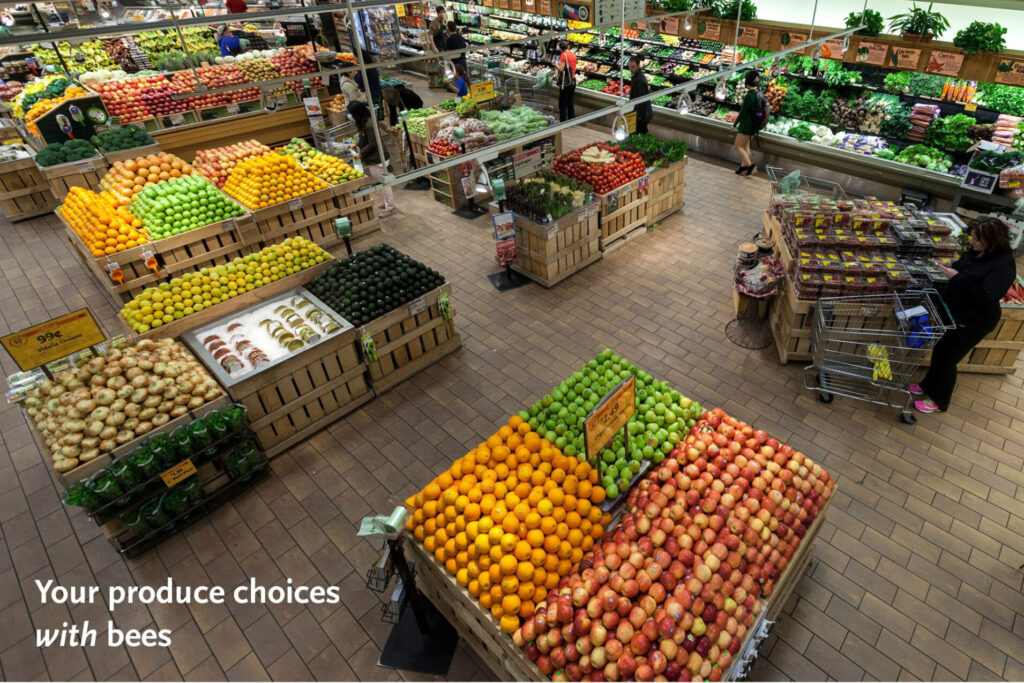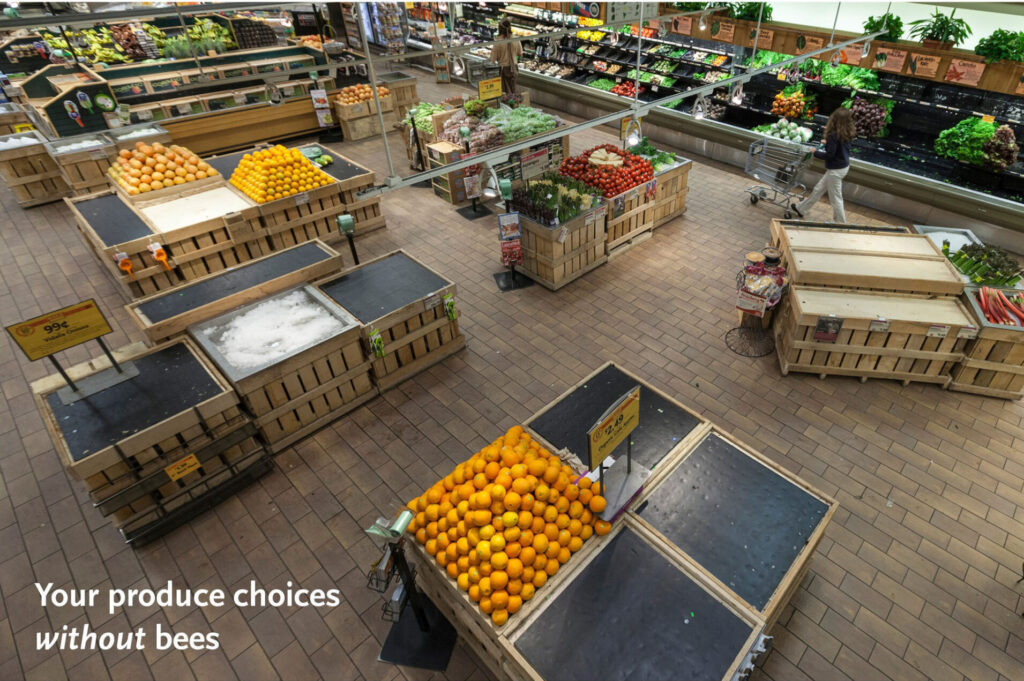CSBA Issues
Pollination
This is what your grocery produce department would look like without bees


Honey bees are the primary managed polinators for over 130 agricultural crops worldwide.
Their role extends beyond agricultural landscapes, as generalist polinators, honeybees contribute significantly to natural ecosystems by supporting plant species that provide food and habitat for countless organisms.
In the U.S. alone honey bee polination services and honey production contribute approximately $22 billion annualy. Their contributions to the food supply and ecology are immeasurable.
California’s beekeeping industry exemplifies the critical role commercially managed honey bees play in supporting agriculture and the economy. In Califiornia, crops heavily reliant on honey bee polination include fruits, tree nuts, vegetables, culinary herbs and nursery plants, many of which are exported globaly. The almond industry alone depends on the polination services of nearly 80% of the nation’s managed honey bee population during its annual bloom.
California has the largest beekeeping industry in the United States. Approximately 600,000 colonies of bees are operated by commercial beekeepers, defined as beekeepers who manage more than 500 colonies along with “sideliner” beekeepers, who manage between 50 and 500 colonies. In addition, California is home to an estimated 10,000 backyard bees, although backyard bees do not typically provide pollination services to commercial farming operations.
Although California is home to the most commercialy managed bees in the U.S., its beekeeping industry is not large enough to meet the polination demands of the state’s almond industry.
As a result, between 1.5 and 2 milion additional bee colonies from around the U.S. are transported into California as early as October.
After almond polination, many beekeepers remain in California to engage in other activities, including polinating other crops, honey production and the production of packaged bees and queens. But it is the income derived from polinating almond crops that allow most beekeepers from across the U.S. to survive economicaly.
